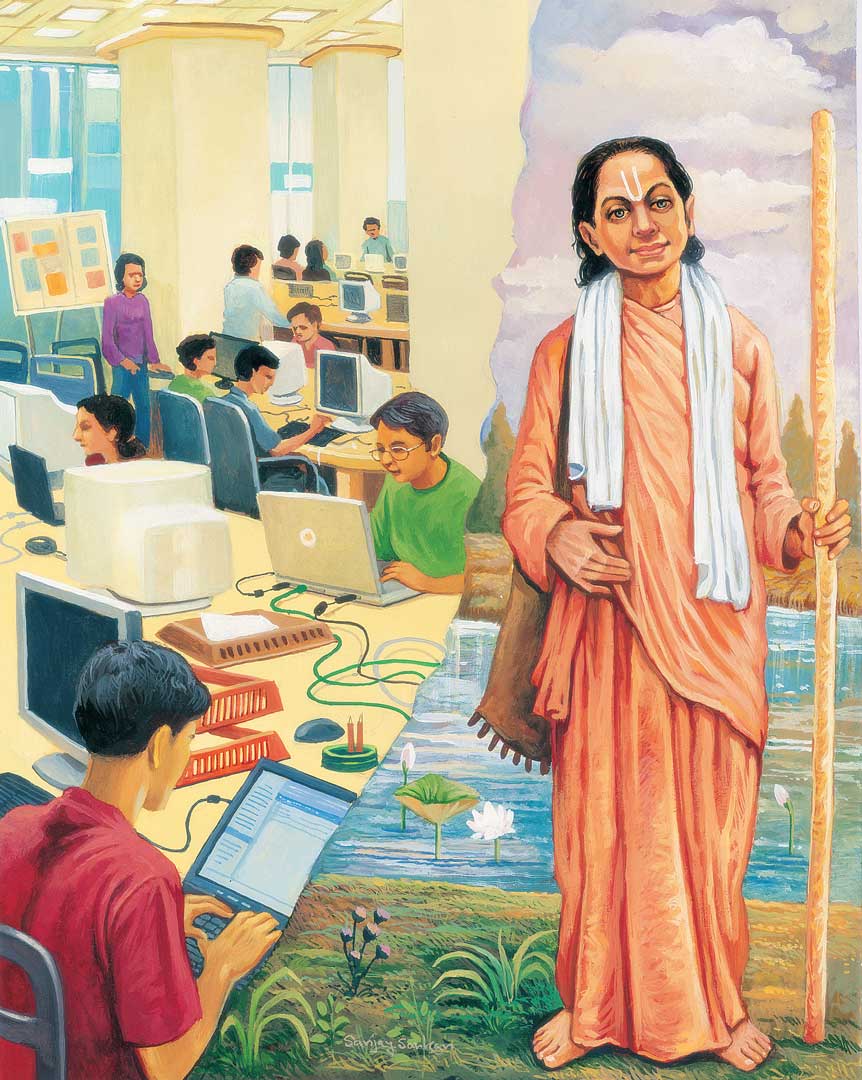

श्रीभगवानुवाच |
इमं विवस्वते योगं प्रोक्तवानहमव्ययम् |
विवस्वान्मनवे प्राह मनुरिक्ष्वाकवेऽब्रवीत् || 1||
śhrī bhagavān uvācha
imaṁ vivasvate yogaṁ proktavān aham avyayam
vivasvān manave prāha manur ikṣhvākave ’bravīt
shri bhagavan uvacha
imam vivasvate yogam proktavan aham avyayam
vivasvan manave praha manur ikshvakave ’bravit
BG 4.1: The Supreme Lord Shree Krishna said: I taught this eternal science of Yog to the Sun God, Vivasvan, who passed it on to Manu; and Manu, in turn, instructed it to Ikshvaku.

Start your day with a nugget of timeless inspiring wisdom from the Holy Bhagavad Gita delivered straight to your email!
Merely imparting invaluable knowledge to someone is not enough. The recipients of that knowledge must appreciate its value and have faith in its authenticity. Only then will they put in the effort required to implement it practically in their lives. In this verse, Shree Krishna establishes the credibility and importance of the spiritual wisdom he is bestowing on Arjun. Shree Krishna informs Arjun that the knowledge being imparted unto him is not newly created for the convenience of motivating him into battle. It is the same eternal science of Yog that he originally taught to Vivasvan, or Surya, Sun God, who imparted it to Manu, the original progenitor of humankind; Manu in turn taught it to Ikshvaku, first king of the Solar dynasty. This is the descending process of knowledge, where someone who is a perfect authority on the knowledge passes it down to another who wishes to know.
In contrast to this is the ascending process of acquiring knowledge, where one endeavors to enhance the frontiers of understanding through self-effort. The ascending process is laborious, imperfect, and time-consuming. For example, if we wish to learn Physics, we could either try to do it by the ascending process, where we speculate about its principles with our own intellect and then reach conclusions, or we could do it by the descending process, where we approach a good teacher of the subject. The ascending process is exceedingly time-consuming, and we may not even be able to complete the inquiry in our lifetime. We can also not be sure about the validity of our conclusions. In comparison, the descending process gives us instant access to the deepest secrets of Physics. If our teacher has perfect knowledge of Physics, then it is very straightforward—simply listen to the science from him and digest what he says. This descending process of receiving knowledge is both easy and faultless.
Every year, thousands of self-help books are released in the market, which present the authors’ solutions to the problems encountered in life. These books may be helpful in a limited way, but because they are based upon the ascending process of attaining knowledge, they are imperfect. Every few years, a new theory comes along that overthrows the current ones. This ascending process is unsuitable for knowing the Absolute Truth. Divine knowledge does not need to be created by self-effort. It is the energy of God, and has existed ever since he has existed, just as heat and light are as old as the fire from which they emanate.
God and the individual soul are both eternal, and so the science of Yog that unites the soul and God is also eternal. There is no need to speculate and formulate new theories about it. An amazing endorsement of this truism is the Bhagavad Gita itself, which continues to astound people with the sagacity of its perennial wisdom that remains relevant to our daily lives even fifty centuries after it was spoken. Shree Krishna states here that the knowledge of Yog, which he is revealing to Arjun, is eternal and it was passed down in ancient times through the descending process, from Guru to disciple.